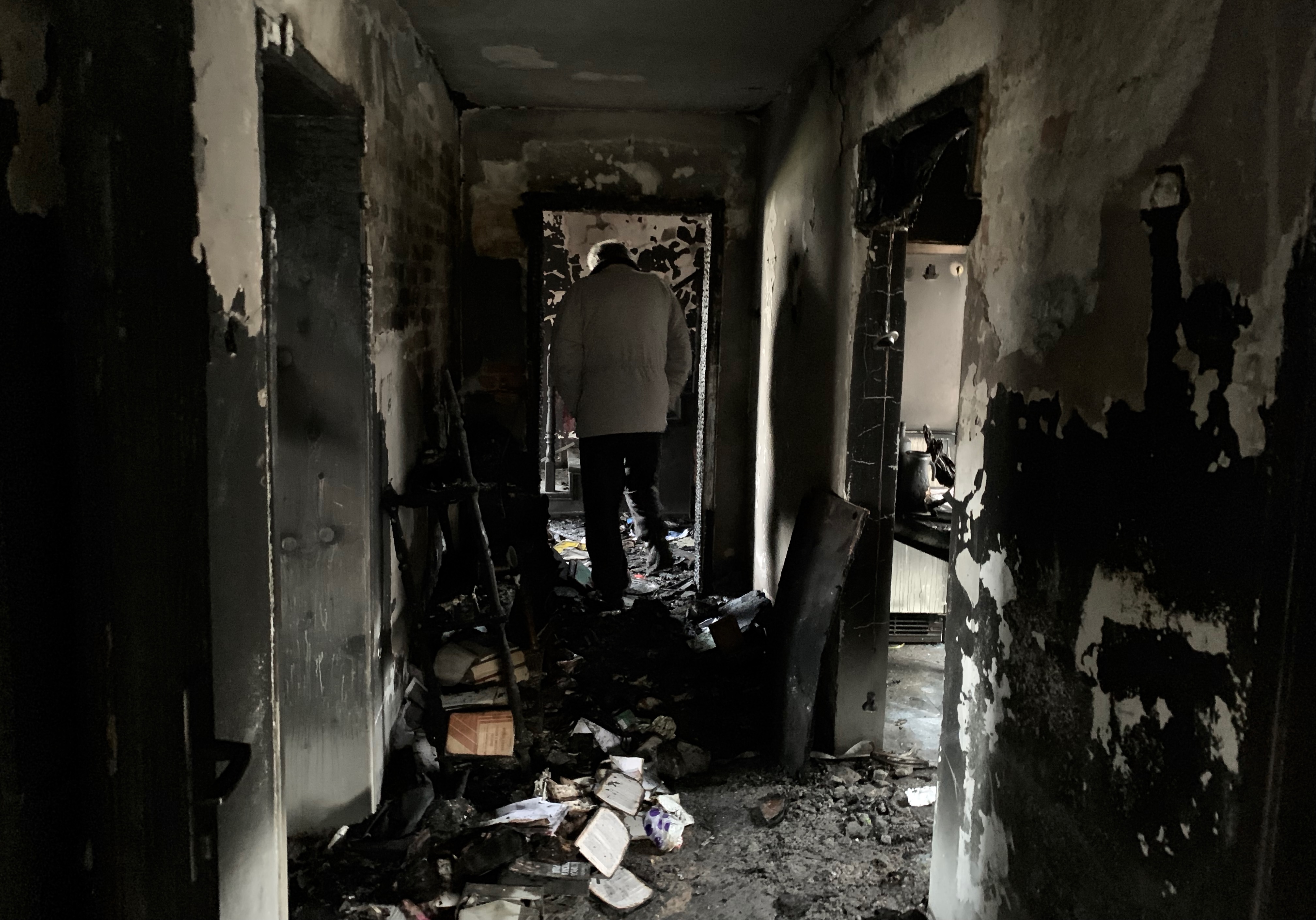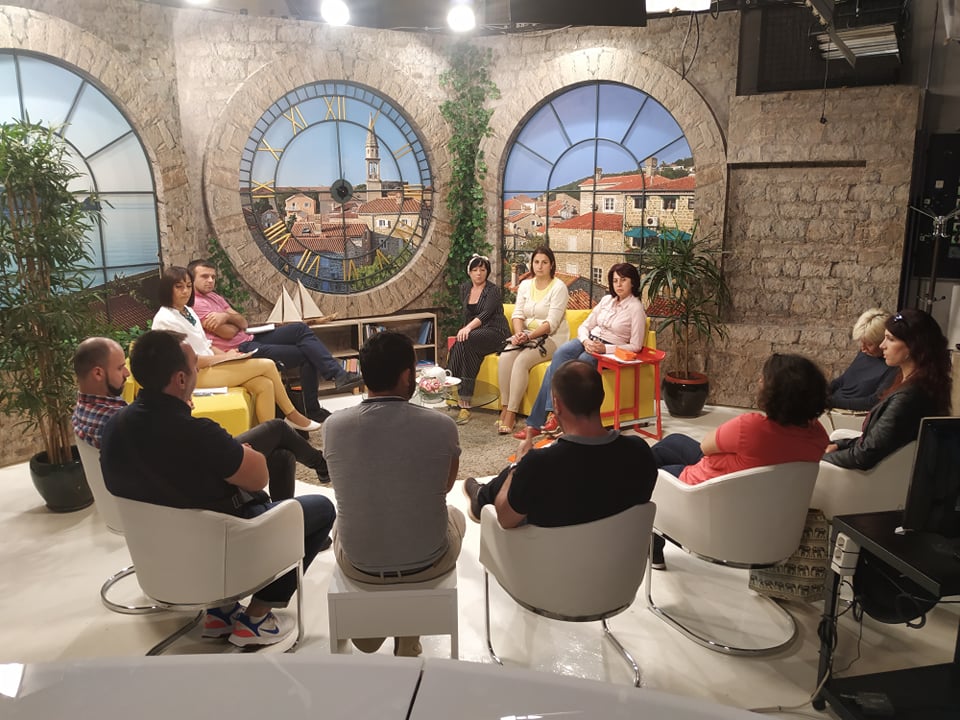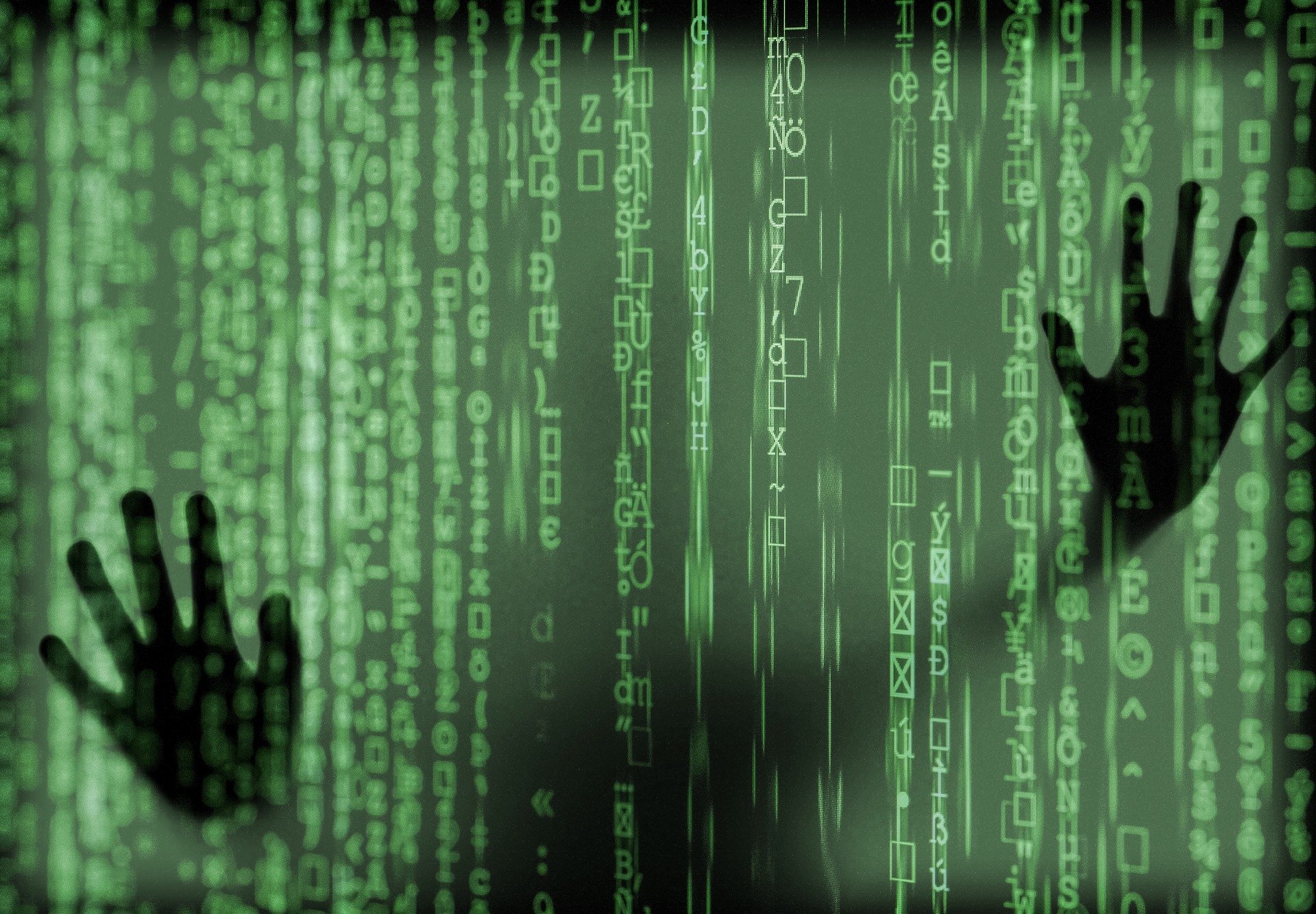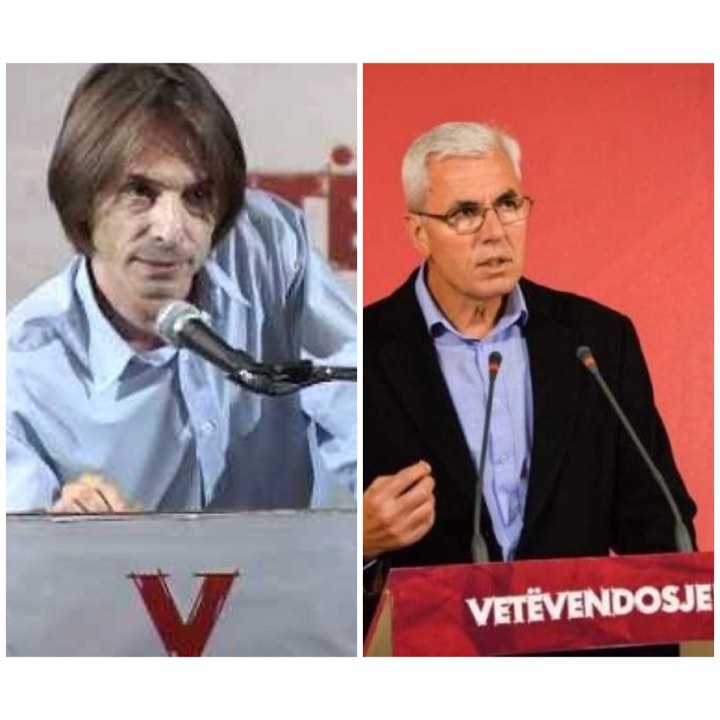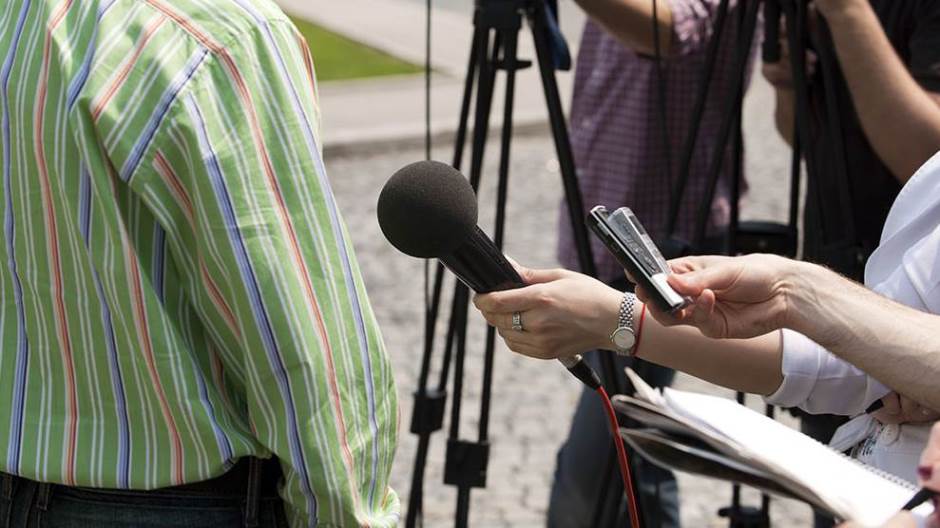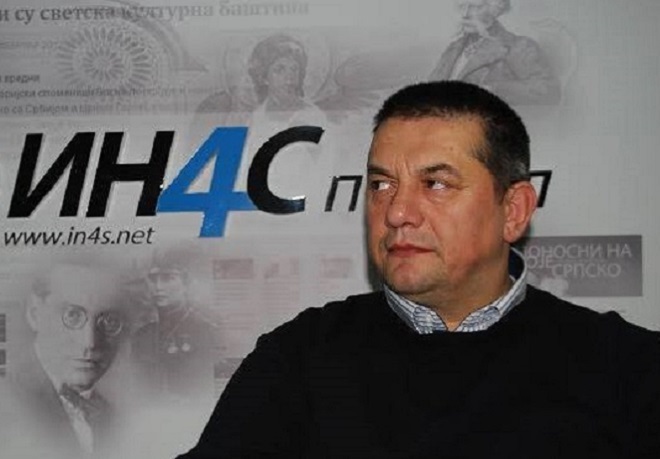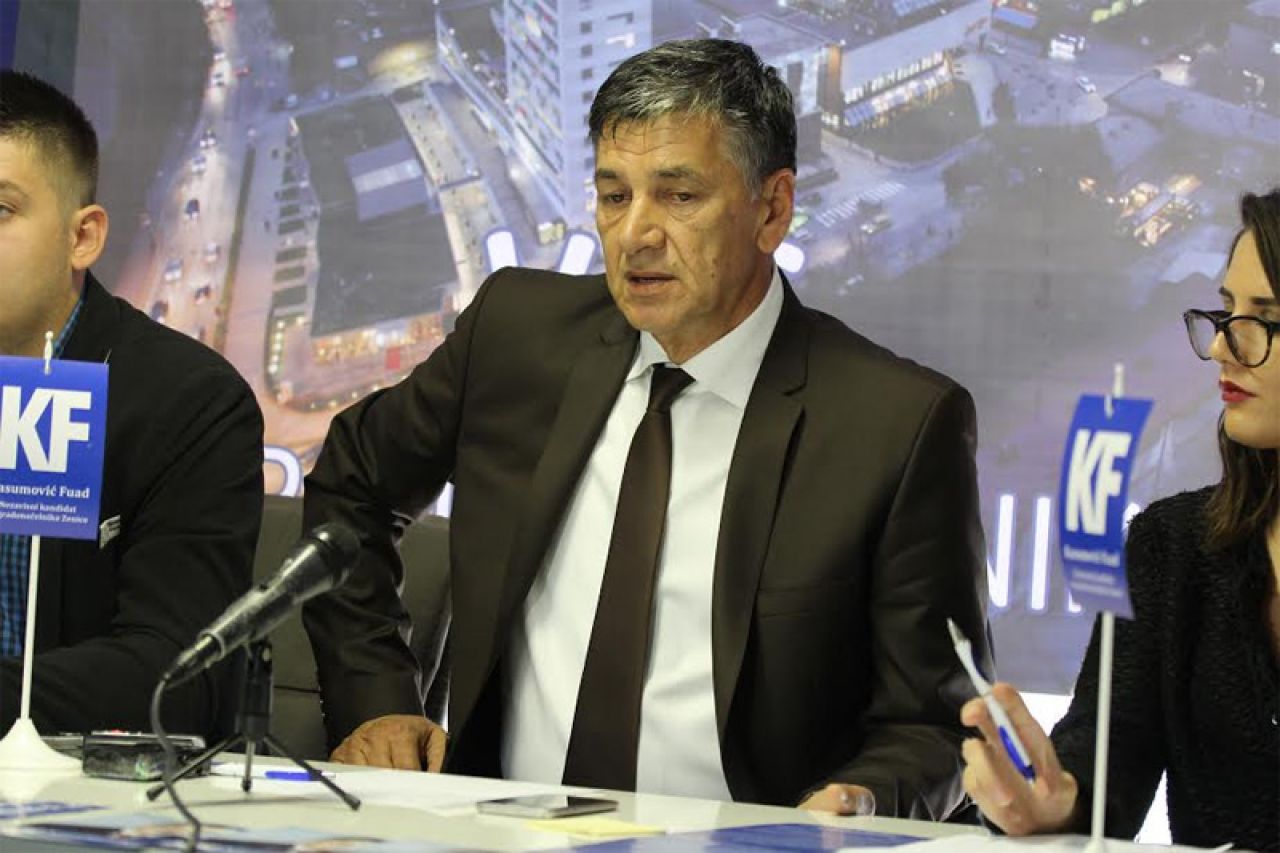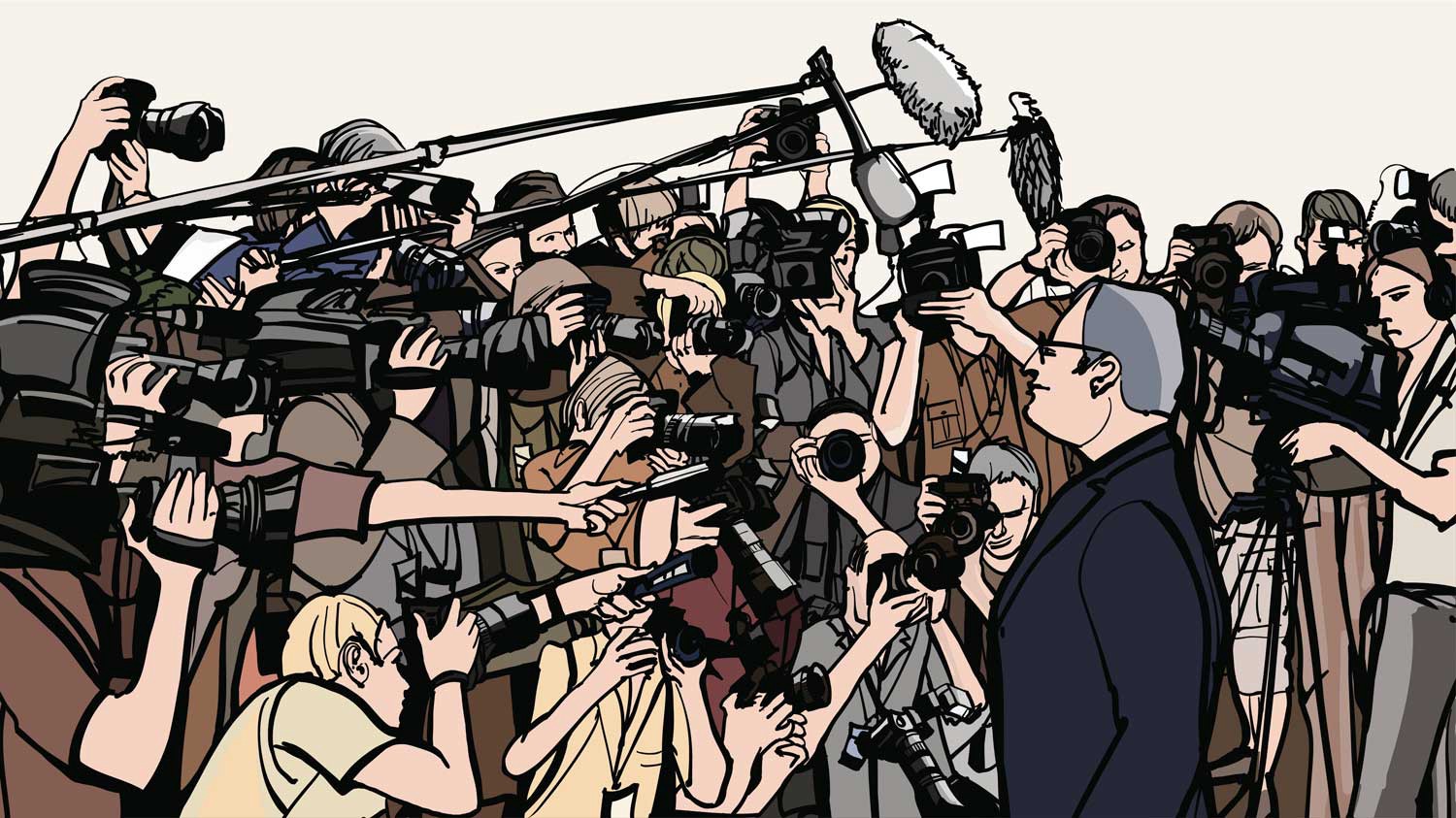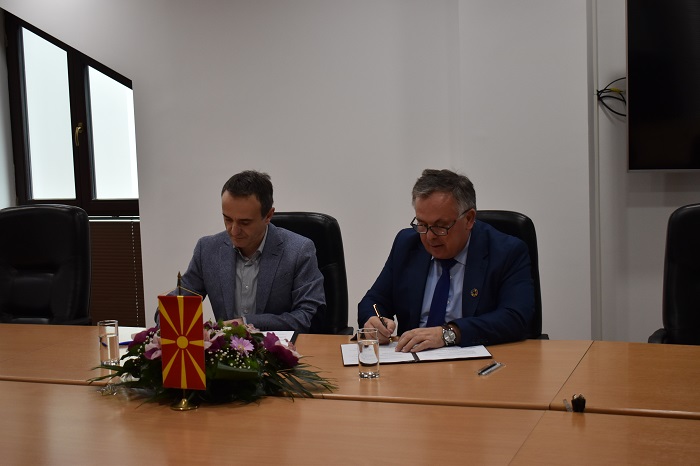BEOGRAD, 14.02.2020. – Optuženi za paljenje kuće novinara Milana Jovanovića, Dragoljub Simonović, tokom suđenja zadovoljno se smeškao, optuženi Novaković sad tvrdi da Simonovića ne poznaje, dok advokati odbrane čoveku kome je spaljena kuća postavljaju takva pitanja da je sudija morao da ih zaustavi rečima: „Ne sudi se ovde Jovanoviću“
Dragoljub Simonović, funkcioner Srpske napredne stranke i bivši predsednik Opštine Grocka, zadovoljno je, često sa osmehom i uz ležeran stav čoveka oslobođenog svakog osećaja stida, pratio današnji „obrt“ na suđenju u kome je okrivljen za paljenje kuće novinara Milana Jovanovića. Jer, danas je još jedan okrivljeni promenio iskaz i Simonovića „oslobodio“ krivice za nalog ovog monstruoznog čina. Optuženi Igor Novaković sad tvrdi da Simonovića ne poznaje, da nikad sa njim nije razgovarao, ali i da se sa okrivljenim Vladimirom Mihailovićem nije dogovarao da organizuje paljenje kuće Milana Jovanovića.
Hteo je samo, kaže, da „barabi i bitangi“ ošteti auto, ali nikakvo paljenje nije pominjao.
Sudskom „obrtu“ tu nije kraj. Okrivljeni Igor Novaković izneo je danas pred sudijom i pravi mali triler scenario o svojoj, kako je rekao, „otmici“ iz pritvorske jedinice Centralnog zatvora, prošle godine. Tada su ga, kaže, bez naloga sudije i bez znanja njegovog advokata, sa lisicama na rukama, nepoznati policajci odveli u Upravu kriminalističke policije na Adi Ciganliji, odnosno u Makiš, i tamo ga, bez vode i hrane, te bez prava na odlazak u toalet, držali šest–sedam sati da bi ga naterali da okrivi Simonovića kao nalogodavca za paljenje novinarove kuće, a da Vladimira Mihailovića okrivi da mu je dao novac da angažuje nekog da to uradi. A ništa od toga nije tačno.
„Priznao sam nešto što nije tačno, na šta su me oni naterali“, rekao je Igor Novaković i precizirao da su u pitanju dve netačne stvari. Prva, da mu je Mihailović dao novac, a on dao Marinkoviću. Druga, da mu je Mihailović rekao da se zapali auto i da je „Sima Ciganin organizator“.
MILAN JOVANOVIĆ: NUDILI SU MI MITO
Novinar Milan Jovanović ispričao je na sudu da mu je neko ko se nije predstavio prošle godine nudio mito da odustane od optužbi na račun Dragoljuba Simonovića.
„Osoba, ne znam kako se zove, došla je kod mene kući i rekla mi: ’Gospodine Jovanoviću, recite bilo koju bezobraznu cifru da ovaj postupak protiv Simonovića ode pod tepih’“, ispričao je na sudu Jovanović.
On tvrdi da ga je odbio jer, kako je rekao, ne bi sebe mogao da pogleda u ogledalo.
Jovanović je posle suđenja rekao za Cenzolovku da veruje da će pravda pobediti i da će sudija znati da prepozna istinu. Takođe, istakao je da je u nalazu budžetske inspekcije koja je ispitivala poslovanje Opštine Grocka u vreme kad je Dragoljub Simonović bio njen predsednik, za 2018. godinu, navedeno mnogo primera milionskog nenamenskog trošenja novca, koji dokazuje istinitost pisanja portala za koji radi, kao i da će Žig info početi da se time bavi u nastavcima.
Pokušaj osporavanja zakonitosti rada tužioca Milovanovića
Prema današnjem svedočenju Igora Novakovića, sve se odigralo tako što ga je Vladimir Mihailović, koga poznaje iz teretane, pitao jednog dana: „Buraz, imam problem sa barabom i bitangom. Da li možeš da nađeš nekog da mi pomogne, da ošteti auto?“ Rekao sam mu: „Buraz, ne bavim se time.“
To se, kako je rekao, događalo početkom decembra 2018. godine, neposredno nakon što mu je umro otac i zatrebao mu novac. Družio se sa Mihailovićem jer je hteo, kaže, da mu što bolje proda neki plac za koji je Mihailović bio zainteresovan i samo mu je to bilo na umu, a nije ga zanimalo ko je „baraba i bitanga“ koja smeta potencijalnom kupcu placa.
Advokat Ivica Vuković detaljno je ispitivao Jovanovića o veličini police na kojoj je novinar držao brojni, skupoceni alat koji je skupljao celog života. Da li je cirkular veliki ili mali, da li je presa velika ili mala. Tražio je od Jovanovića da precizira koliko santimetara prostora je u garaži bilo za alat
Prema daljem Novakovićevom svedočenju, nekoliko dana nakon ovog razgovora, sreo je Aleksandra Marinkovića, okrivljenog da je bacio „Molotovljev koktel“ na kuću novinara, i pitao ga: „Mali, je l’ hoćeš da sjebeš jedan auto“. Novaković tvrdi da mu je ta ideja da angažuje Marinkovića slučajno sinula jer mu je bio potreban novac, a Marinković mu je dugovao „oko 500 evra“ koje u tom trenutku nije imao da vrati.
„Mislio sam na – polupati stakla, izbušiti gume, prosuti ulje po autu. Nijednog trenutka nisam pomenuo paliti, zapaliti, ’Molotovljev koktel’. Kako se stvorila ideja u njegovoj glavi da pali, ja stvarno ne znam. Moja je zamisao bila da će to da pomogne da Mihailović kupi plac od mene. Posle toga nisam video Marinkovića“, ispričao je Novaković na suđenju.
Ovakvo svedočenje Igora Novakovića nije bilo neočekivano, jer je pre njega, takođe okrivljujući neimenovane policajce da su ga pritisnuli da lažno svedoči i okrivi Dragoljuba Simonovića, Vladimir Mihailović promenio iskaz i sad se te dve priče okrivljenih organizatora paljenja kuće međusobno podupiru.
Takođe, Novakovićevim svedočenjem o navodnoj „otmici“ iz zatvora, koju je negirao upravnik zatvora i za koju zasad nema materijalnih dokaza, osporava se zakonitost rada zamenika javnog tužioca Predraga Milovanovića.
Da podsetimo, zameniku javnog tužioca je na jednom od prethodnih ročišta Dragoljub Simonović pretio da „može i da ne bude više tužilac“, upravo osporavajući zakonitost njegovog rada. Nakon svedočenja i promenjenih iskaza i Vladimira Mihailovića i Igora Novakovića, sav teret za paljenje kuće pao je na Aleksandra Marinkovića – koji je u bekstvu.
Kome će sudija pokloniti poverenje?
Prema ovim novim verzijama, Dragoljub Simonović je potpuno nevino okrivljen, a za to su zaslužni nekakvi neimenovani policajci koji su pokušali da mu napakuju težak zločin za koji je zaprećena kazna od osam godina zatvora. Budući da se sve zasniva na priznanjima i negiranju tih priznanja, sve će zavisiti od toga kome će sudija Slavko Žugić pokloniti poverenje.
Simonović je pitao Jovanovića i da li je imao dozvolu da počne sa rekonstrukcijom kuće, kao i koliko je bila stara stolarija na kući. I advokati Gostiljac i Ivica Vuković, kao i Dragoljub Simonović, postavljali su takva pitanja da je sudija Žugić u jednom trenutku pomalo povišenim glasom pokušao da sve to zaustavi: „Ne sudi se ovde Jovanoviću“
Svedočenje Igora Novakovića ostaće upamćeno i po još nekim pikanterijama. Ne samo da je pogrešio datum, tačnije godinu, iznoseći optužbu na račun novinara Milana Jovanovića, koji je navodno dolazio do njegove kuće i pretio njegovoj supruzi, nego je ispričao i dve bizarne priče o pozajmici od „oko 500 evra“ i o čaurama koje je video ispred kuće Milana Jovanovića kada je ponovo, sasvim slučajno, prolazio tuda u vreme policijskog uviđaja na dan kada je Jovanoviću spaljena kuća.
Novaković je naveo da je iz kola, u prolazu, video dve čaure, i to jednu nasred ulice, a drugu malo ukoso i levo. Naime, u novinarskim izveštajima se navodi da je na Jovanovićevu kuću pucano da bi se sprečilo da pobegne, tako da je supruga morala da ga ošamućenog od dima izvlači iz kuće.
Kad je u pitanju pozajmica od „oko 500 evra“ koja je navodno bila jedan od motiva da Igor Novaković predloži Aleksandru Marinkoviću da „ošteti“ kola, Novaković je ispričao da je novac pozajmio sredinom 2018. godine jer je „hteo dečku da pomogne“, a ne sa kamatom.
Priča o pozajmici u kojoj se ne navodi tačan iznos čudna je tačno onoliko koliko i empatija prema novčanoj iznudici jednog „dečka“. Novaković tvrdi da je novac „u crvenoj koverti“ na kojoj je napisao „Kloki“ ostavio u jednom kafiću čijeg se imena ne seća. Bilo je zanimljivo i kad je opisao da je odbio da policiji preda snimak sigurnosne kamere sa svoje kuće jer on „ne voli policiju“ i od nje „beži“.
Priča o ovako darežljivoj pozajmici i Novakovićevom planu da uveže predlog Vladimira Mihailovića o oštećenju kola „barabi i bitangi“ uklopila se na sledeći način:
„Da sam od Mihailovića tražio novac, on bi mi dao. Time bih namirio dug koji mi je dugovao Marinković, a ako bi bilo više, onda bih častio Marinkovića“, ispričao je juče Igor Novaković.
„Ne sudi se ovde Jovanoviću“
Mnogo vremena i pažnje na današnjem ročištu poklonjeno je vrednosti spaljene i uništene imovine novinara Milana Jovanovića. Odštetni zahtev za kuću i sve što je Jovanović celog života sticao, a što je nestalo u plamenu 12. decembra 2018. godine, podnet je na sedam miliona dinara.
Advokati okrivljenog Simonovića, ali i sam bivši predsednik Opštine Grocka, trudili su se da taj odštetni zahtev prikažu kao nerealan, da uteraju u laž novinara Milana Jovanovića i da ga prikažu kao nekredibilnog svedoka koji je proganjao bivšeg predsednika opštine.
Novaković tvrdi da je novac „u crvenoj koverti“ na kojoj je napisao „Kloki“ ostavio u jednom kafiću čijeg se imena ne seća. Bilo je zanimljivo i kad je opisao da je odbio da policiji preda snimak sigurnosne kamere sa svoje kuće jer on „ne voli policiju“ i od nje „beži“
„Da li vi opsesivno pratite Simonovića?“, pitao je u jednom trenutku Simonovićev advokat Viktor Gostiljac. Mučno je bilo slušati pitanja kojima je insinuirano da nije sve spaljeno i uništeno u požaru, kao i da je vrednost toga što je spaljeno višestruko niža. Simonović je čak, kad je dobio priliku da postavlja pitanja oštećenom Jovanoviću, izjavio: „Imam slike da je poklanjao nameštaj po selu“, a radilo se o dva delimično spržena kreveta koja je Jovanović izneo u dvorište u nameri da ih baci, ali ih je na nečiju molbu poklonio.
Simonović je pitao Jovanovića i da li je imao dozvolu da počne sa rekonstrukcijom kuće, kao i koliko je bila stara stolarija na kući. I advokati Gostiljac i Ivica Vuković, kao i Dragoljub Simonović, postavljali su takva pitanja da je sudija Žugić u jednom trenutku pomalo povišenim glasom pokušao da sve to zaustavi:
„Ne sudi se ovde Jovanoviću“, rekao je sudija Žugić.
Advokat Ivica Vuković detaljno je ispitivao Jovanovića o veličini police na kojoj je novinar držao brojni, skupoceni alat koji je skupljao celog života. Da li je cirkular veliki ili mali, da li je presa velika ili mala. Tražio je od Jovanovića da precizira koliko santimetara prostora je u garaži bilo za alat ako je tu parkiran „mercedes“. Inače, Jovanović je poslednje rate kredita za spaljeni „mercedes“ otplatio, kako je sam rekao, tek na leto prošle godine.
„Meni u kući nije ostalo ništa. Sve je istopljeno, uništeno“
Često se pominjala i Slavko Ćuruvija fondacija koja je pokrenula humanitarnu akciju prikupljanja novca za renoviranje Jovanovićeve kuće. Advokat Vuković je želeo da zna gde su priznanice i ko garantuje da je sav kupljeni materijal ugrađen baš u kuću, zašto Slavko Ćuruvija fondacija nije angažovala građevinsku firmu nego je to uradio Jovanović…
Prema ovim novim verzijama, Dragoljub Simonović je potpuno nevino okrivljen, a za to su zaslužni nekakvi neimenovani policajci koji su pokušali da mu napakuju težak zločin. Budući da se sve zasniva na priznanjima i negiranju tih priznanja, sve će zavisiti od toga kome će sudija Slavko Žugić pokloniti poverenje
Advokatica Zora Dobričanin Nikodijević je podsetila da su proračuni Slavko Ćuruvija fondacije „daleko niži“, da je prikupljeno 2.626.000 dinara, uz bankarsku proviziju od 39.310, kao i da su proračuni Fondacije 4.495.000 dinara.
Advokati su Milana Jovanovića više puta podsećali da se pored njegove kuće nalazi druga koja je na prodaju za 35.000 evra i pitali ga koliko misli da vredi kvadrat njegove kuće, pa i proveravali da li njegova kuća ima 196 kvadrata.
Odgovarajući na sva ova pitanja, Milan Jovanović je rekao da je pored donacije koju je dobio od Slavko Ćuruvija fondacije, dobio i nešto preko 1.000 dolara donacije iz Njujorka, od novinara, da je sve to uložio u rekonstrukciju kuće i kupovinu stvari za kuću, ali i da se dodatno zadužio između šest i sedam hiljada evra kupujući ono što je potrebno. Milan Jovanović je procenio da će mu trebati još dvadesetak hiljada evra za sanaciju, ne računajući stvari i alat koji su u kući uništeni.
„Meni u kući nije ostalo ništa. Sve je istopljeno, uništeno“, rekao je novinar portala Žig info.
Inače, Jovanović je juče bio ispitivan u svojstvu svedoka. Iako je pripremio mnogo fotografija i dokaza kojima je hteo da ukaže na nelogičnosti u svedočenjima Mihailovića i Novakovića kojima se neimenovani policajci navodno terete za nekakvu zaveru protiv Simonovića, odnosno pritisak na njih da ga lažno optuže, sudija Žugić nije dopustio iznošenje tih dokaza.
„Moja uloga je da cenim logičnost iskaza. Još sam oštrog uma“, reči su kojima je sudija odbio Jovanovića.
Sudija je, takođe, pred kraj suđenja zaključio da „nijednom okrivljenom nije dozvolio više da priča“ nego što je to dozvolio okrivljenom Dragoljubu Simonoviću.
Naredno ročište u slučaju paljenja kuće novinara portala Žig info zakazano je za 30. mart u 9 sati, u Palati pravde.


